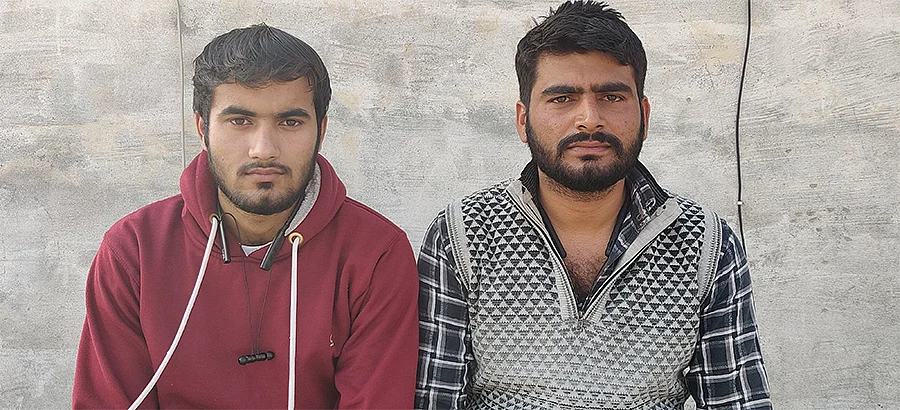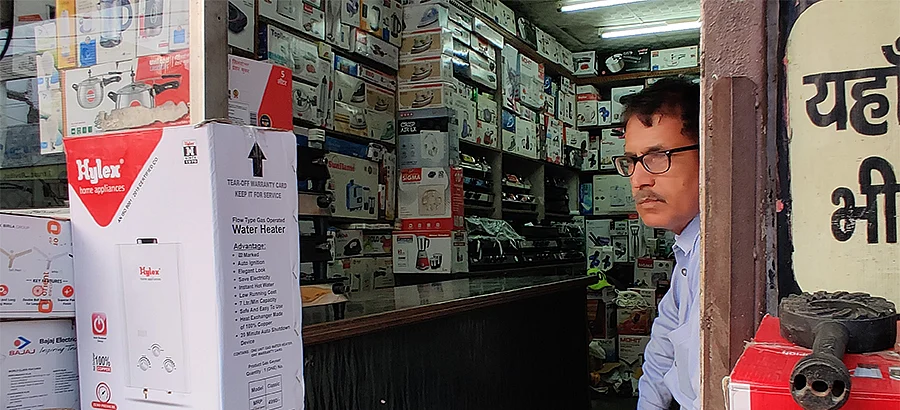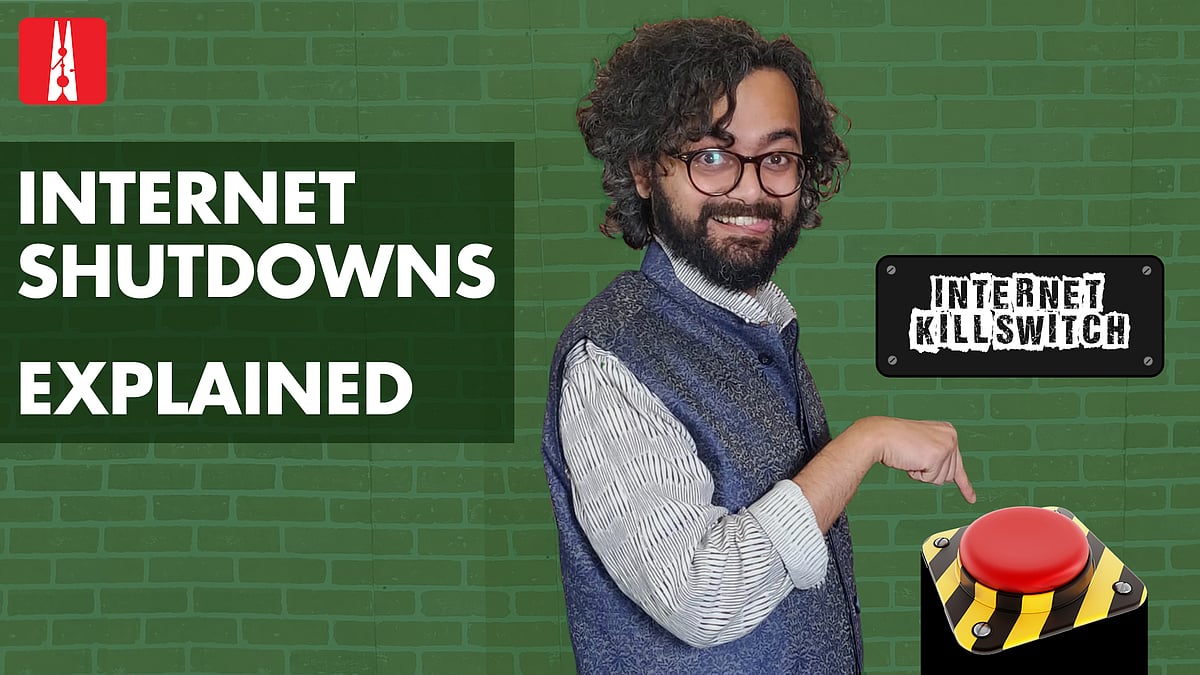Missed application deadlines, loss of income: Impact of the internet shutdown in Haryana
Though some felt it was for their ‘safety’, others asked what internet shutdowns say about ‘Digital India’.
Mohit Rana doesn’t have the heart to tell his parents that he was unable to apply for the staff selection commission-combined graduate level exam.
“They won’t understand,” he said. “They will ask me why I didn’t submit the application on time.”
But Mohit, a resident of Haryana, had tried his best. The SSC-CGL exam, conducted by the central government to recruit staff for various government posts, opened its application process on December 29. The last date to apply was January 31, and applications could only be submitted online.
Throughout January, applicants like Mohit were plagued with issues: website glitches and server problems that didn’t allow them to submit their forms, and an administrative office that was non-responsive to their telephone calls for help.
Then, on January 26, just when Mohit thought he might finally succeed in submitting his application, the government announced an internet shutdown in 17 of Haryana’s 22 districts due to the ongoing farmer protests on Delhi’s borders. One of the districts was Sonipat, where Mohit lives.
The shutdown was rolled back on February 8, eight days after the deadline to apply for the SSC-CGL exam.
Mohit had missed the deadline. He was shattered.
His friend Monty Rana was unable to apply as well. “I understand there were some circumstances that arose that forced an internet shutdown,” he told Newslaundry. “The least they could have done is extend the deadline. This is not our fault.”

Suraj Kumar, an aspirant who was unable to apply for the SSC-CGL exam, said: “People have the right to at least submit an application, to apply. You cannot deny them this right.”
The internet shutdown, many aspirants told Newslaundry, made a bad situation worse, given the process was already swamped in difficulties. While aspirants held a Twitter campaign to urge the authorities to extend the deadline, many people couldn’t participate in it due to the internet shutdown.
“There were server issues and website glitches,” Suraj said. “Many attempts were made to reach SSC before and on the deadline to report these issues, but to no avail.”
Mohit pointed out that the aspirants lost a lot of money by being unable to apply for the exam.
“When you add up everything required for this single exam – online courses, books, library fees, necessary materials like laptops – it’s over Rs 40,000,” he said. “There are a lot of people who are not financially stable and it’s not easy for them to bear this whole burden again.”
Monty said he already faces “societal and parental pressure”, and his inability to apply for the exam has compounded his woes. “People refer to us as good-for-nothing vagabonds,” he said, “and that really plays on our minds.”
On the internet shutdown, Monty added: “The main issue was the halt of our online studies. We use the internet only for that. Our regular life was just preparing for the exam.” He paused and laughed. “We don’t pay attention to anything else in our life.”
Financial impact on small businesses
India holds the dubious record of having the highest internet shutdowns in the world in 2020. On February 1, after the Haryana government’s decision to shutdown the internet, the Internet Freedom Foundation, the Free Software Movement of India, and the Software Freedom Law Centre India issued a joint statement calling it the government’s “routine response to protests”.
“The harm caused by these internet shutdowns outweigh any speculative benefit,” the statement said.
In Haryana’s Sonipat, members of the food service industry told Newslaundry that they suffered the financial costs of the shutdown.
Himanshu Goyal, 30, is the owner of Bunny’s Kitchen, a restaurant in Sonipat with a 4.2-star rating on Zomato. During the 13-day internet shutdown, his restaurant experienced a 30 percent drop in sales.
“We rely heavily on Zomato and Swiggy for our customers,” he said. “During the shutdown, our customers could not use these apps, leaving us with no orders. We normally get 80 orders a day on these apps and that number came down to zero.”
Himanshu also had to scramble to manage the sudden spike in cash transactions, since his customers usually pay online or through digital payment methods like Paytm. Due to the abrupt and uncertain nature of the shutdown, he added, he was unable to minimise his losses.
“Thankfully, as soon as the internet resumed, our sales picked up as well,” he said. “Customers went back to ordering food and paying online.”
Achin Sachdeva, who runs a stationary shop in Sonipat, said his business suffered due to the shutdown as well.
“With the issue at the Singhu border, all my dealings with suppliers – like placing orders and transporting them – takes place on WhatsApp,” he explained. “So, the main issue I faced was that the system I had set up to adapt to ‘Digital India’ had been completely disrupted without warning.”
While Achin hasn’t calculated the losses he incurred, he said the shutdown directly affected his sales, since most of his customers relied on digital payment methods.
“Even if customers didn’t have cash, they would usually call someone who would transfer the money to me,” he said. “But once the shutdown happened, all this completely stopped.” Business isn’t back to normal yet, he added.



Jitender Kumar, 52, who runs a shop selling electronic appliances in Sonipat, told Newslaundry he suffered a 20 percent dip in sales. In several cases, he said, customers would come in, realise they couldn’t pay online, and then leave without buying anything.
“I was already suffering because of the lockdown and the internet shutdown added to my professional and personal problems,” he said. “I could not pay my phone or electricity bills, or my children’s school and college fees. Their classes also stopped and no help was extended...Everything came to a standstill.”
Yet Jitender claimed the shutdown was done for “safety reasons” – and it worked. “At a time when emotions were high, people couldn’t get in touch with each other and plan anything that would cause harm to others,” he said. “That was a good thing. But it doesn’t mean the loss I suffered was justified. The government needs to find a solution that keeps our needs in mind, while ensuring our safety.”
Achin agreed. Citing the 2016 Jat reservation agitation, he maintained that losing access to the internet was better than violence. “During the lockdown, we learned to live without leaving our houses, which we didn’t think was possible before,” he added. “And now we know that life is possible without the internet.”
But Jitender said that internet shutdowns might hurt India’s reputation. “If the internet is shut down without warning or a deadline in ‘Digital India,” he said, “how will there be any progress?”
Update: A previous version of this story indicated that the SSC-CGL is conducted by the Haryana government, instead of the central government. This has been corrected. The error is regretted.
 Why Disha Ravi’s arrest should worry independent media platforms
Why Disha Ravi’s arrest should worry independent media platforms Explained: Why internet shutdowns are a violation of human rights
Explained: Why internet shutdowns are a violation of human rights